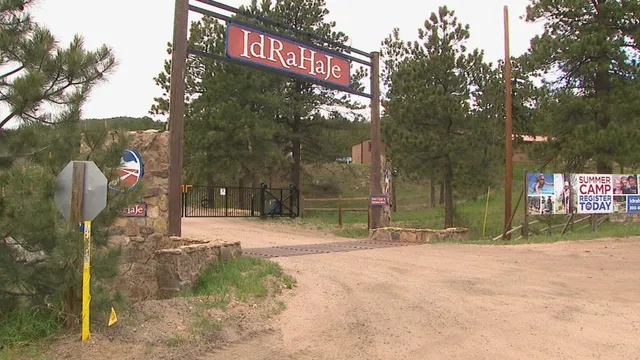
Colorado exempts Christian camp from gender identity regulations
2025-06-25 05:00- Camp IdRaHaJe filed a federal lawsuit against the Colorado Department of Early Childhood in May, challenging state rules on gender identity.
- As part of the settlement, Colorado recognized that religious children's camps are exempt from gender identity regulations.
- This case highlights significant tensions between state anti-discrimination policies and the rights of religious organizations.
Express your sentiment!
Insights
In a significant development, a Christian camp located in Bailey, Colorado, has reached a settlement with the Colorado Department of Early Childhood regarding rules on gender identity. The camp, Camp IdRaHaJe, filed a federal lawsuit in May challenging the state's requirement for children's camps to accommodate gender identities in facilities such as showers and sleeping quarters. Camp IdRaHaJe argued that this requirement infringed upon its religious beliefs and long-established practices. The camp sought relief from the pressures of state regulations that conflicted with its convictions about biological sex and religious teachings. The lawsuit highlighted tensions between state anti-discrimination policies and the rights of religious organizations to uphold their beliefs without fear of legal repercussions. As part of the settlement, the Colorado Department of Early Childhood clarified that religious organizations, including children’s camps, are not considered “places of public accommodation” under the law, thus granting them exemptions from the gender identity rules imposed by the Colorado Anti-Discrimination Act. The department emphasized that it had never taken action against Camp IdRaHaJe based on these regulations, reinforcing that the camp could operate freely without the burden of compliance with gender identity policies. This decision marks a notable victory for the camp and similar religious organizations across Colorado, allowing them to maintain their operational standards aligned with their faith. It also underscores the complexities surrounding issues of gender identity accommodations in state licensing, particularly for faith-based organizations. The updated regulations were a direct response to the legal complaint filed by Camp IdRaHaJe, demonstrating how litigation can invoke substantive changes in public policy. Following the settlement, state officials expressed their commitment to uphold the rights of religious groups within the existing legal framework while balancing the rights of all individuals. The outcome is being viewed as a pivotal moment for religious camps in Colorado, providing reassurance that they can continue their missions without compromising their beliefs.
Contexts
The impact of anti-discrimination laws on religious organizations has become an increasingly important topic as society strives for equality while balancing the rights of various belief systems. These laws are designed to protect individuals from discrimination based on race, sex, age, disability, religion, and sexual orientation. However, the intersection between anti-discrimination legislation and religious freedoms often leads to complex legal and ethical debates. Religious organizations, which derive their values and practices from deeply held beliefs, can find themselves at odds with these laws when adherence to their doctrines appears to conflict with the protections offered to individuals under anti-discrimination statutes. One of the most significant impacts of anti-discrimination laws on religious organizations has been the potential limitation of religious liberties. For instance, some faith communities may have specific theological tenets that govern their hiring practices and membership eligibility. When anti-discrimination laws mandate inclusive practices that contradict these tenets, religious organizations may face difficult decisions. This tension can result in legal challenges, as organizations seek exemptions based on their religious beliefs. Courts have sometimes sided with these organizations, acknowledging the importance of religious freedom, but outcomes can vary widely depending on jurisdiction and the specifics of each case. Moreover, anti-discrimination laws can also foster an environment that compels religious organizations to reevaluate their practices and policies. As societal norms evolve, many faith groups begin to adapt to contemporary understandings of equality and inclusion, reflecting a more progressive approach while maintaining their core beliefs. This adaptation can lead to internal dialogue and shifts in practices that align more closely with anti-discrimination standards, potentially resulting in a more inclusive community that bridges the gap between tradition and modernity. However, these changes are not without resistance and can lead to divides within communities, as members may hold differing views on the interpretation of doctrine in the context of contemporary anti-discrimination frameworks. The implications of anti-discrimination laws extend beyond individual organizations to influence the broader religious landscape. Public perception of religious institutions often shifts when these conflicts arise, as the narratives surrounding inclusion and equality garner significant media attention. As a result, religious organizations may find themselves re-evaluating their public image and engagement with the communities they serve. In many cases, the struggle for compliance with anti-discrimination laws is not merely a legal issue but one that touches upon the heart of what it means to be a faith community in a diverse society. Balancing fundamental religious convictions with respect for human rights is a delicate endeavor that will continue to shape the future of religious organizations as they navigate these complexities.